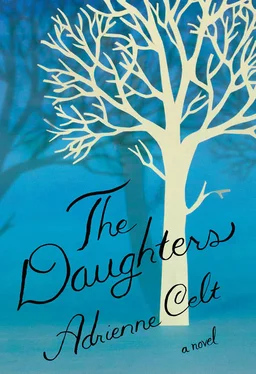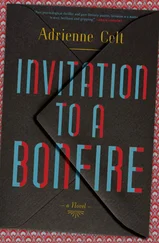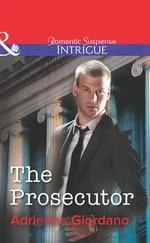At the time, Lulu hadn’t been performed anywhere in the world in its entirety. Shows were gearing up in Paris and — oddly enough — New Mexico, rumors being murmured into the ears of the highest society. It was shocking, people said. Adultery and misused sexual power and love wielded like a whip. A woman so desirable she can only destroy herself. And the music is also a challenge: it plunges through discordancy into positive aggression; the orchestration calls for a vibraphone and requires an onstage jazz band in addition to a pit orchestra. The sound expresses a complex network of psychological wounds and perversions.
As most of the world chugged on blissfully unaware and most opera lovers waited in painful anticipation for the Paris premiere, a small subclass of aficionados surfaced and groped their way towards one another. These were people who couldn’t be satisfied by seeing the new opera — with its mysterious backstory and dead composer, in addition to its salacious libretto — performed on television in a foreign country. They wanted Lulu immediately, and they wanted to inhabit her.
Anything can be had for a price: at least, if the right person is willing to pay. Even a piece of music that is being held hostage for reasons of propriety, bereavement, and force of law. So musicians were assembled from Chicago’s jazz underground, singers invited through a series of secret handshakes and lucky misunderstandings. Costumes were borrowed from the mothballs of old shows — a dress here, a coat there. And though no one asked how she accomplished it, the soprano showed up at the very first rehearsal with copies of the complete score and libretto for every participant. They were to be kept secret on pain of death or humiliation.
Here is the thing you must understand: to know an opera you must be part of it. You must emerge into its world and lose yourself there with no hope of ever escaping completely. No matter where you go, the pitches and tones will follow you. The arias will pop up at inconvenient moments, and you’ll see the characters ducking into alleys years after you last met them onstage. Letting some other company have the world premiere of Lulu would’ve been, to the performers I saw in the darkened, near-empty Civic Opera House, like watching strangers parade around in their stolen skins. They didn’t care about having an audience; they cared about the thing itself.
My mother was not invited to be a part of the secret show. But she knew enough people to finagle two of the precious seats in the theater when almost no one was allowed in. She brought me there to show me what it meant to have real passion. What she didn’t anticipate was that perhaps I already knew.
In the first intermission the entire small audience crowded together in the hallway and passed around bottles of champagne: I was allowed two tastes myself and laughed to feel how strangely the bubbles sipped at my throat. Lulu’s second husband, The Painter, had committed suicide, and she had convinced Dr. Schön to throw off his fiancée and marry her instead. She looked dark and foreboding onstage, but throughout the first act had worn a red cloth heart pinned to the front of her dress, which was occasionally singled out in a lone slender spotlight.
Sara put her hands on my shoulders, leaned down, and gave me a quick kiss on each cheek. She was lightheaded from the champagne, like me. I could tell: she bobbed from foot to foot as though she was standing behind a microphone, and her expression was moony.
“What do you think?” she asked me.
I regarded her seriously.
“It feels real.”
“Yes.” My mother gave me a strange look. “It does.”
By the second intermission the champagne was all gone, but Sara procured a bottle of whiskey, which she shared out in nips amid the nervous laughter of the small crowd. Lulu had become heady with lovers in this act: lovers hiding in closets and spilling out from behind divans. Lovers accusing their own sons of treachery and emerging from under tables like ghosts rising from ill-dug graves. Dr. Schön, played by the tuxedoed gatekeeper who’d burned our tickets by the door, encouraged Lulu to shoot herself to atone for her perfidy, but she shot him instead. When Lulu was sentenced to life imprisonment, the jurors tore her red heart in half and left her with only the wound. She fell ill.
I had a new admiration for the gatekeeper after hearing him sing. In the hallway I tugged on Sara’s arm to ask her who he really was, but she was busy laughing with a man whose face was completely hidden behind his beard. Without looking down, she offered me the bottle of whiskey, and I was so confused that I backed away and waited by the wall for the bells to direct us back to our seats.
At the end of the second act, Lulu escaped from prison by letting her lover, a beautiful countess, rot there in her place. She left for Paris with Dr. Schön’s son, Alwa, a strange and desperate look painting her face.
The third act was the real premiere: the composer had died before finishing it, leaving behind the sordid tale and a series of complex notes and ideas. His widow forbade anyone to complete the opera, then changed her mind, changed it back, and finally capitulated to a full production through the simple expedient of her death.
Sitting in the darkness waiting for the music to recommence, Sara mumbled that she was cold and started fumbling with her coat and scarf. One of the gloves fell out of her pocket and she swore, feeling past my feet for it and finally giving up.
“Shit,” she said. “Shit shit shit.” I bit back the urge to shush her.
The act opened with a scene of opulent destruction: the police continued to pursue Lulu as she and Alwa made toasts at a party. The smile on Lulu’s face was false and men tugged her from side to side, whispering items of blackmail into her ears until finally they pulled off the sleeves of her dress, leaving her shivering in the middle of the room. Everyone’s wealth was consumed by a stock market crash, and Lulu managed to escape only at the last moment by tricking the police into arresting a waiter instead.
My heart was beating so loudly in my ears that it nearly obscured the voices of the singers. With one exception: Lulu’s could always reach me. The notes she sang carved the room like a guillotine blade. I reached out and tried to hold my mother’s hand, but she’d thrust it into her pocket and refused to budge. She sniffed slightly, watching the jazz band onstage. The bassist was a man she sometimes worked with. She seemed to be sizing him up, her lip curled back with derision.
Finally, reduced to prostitution, Lulu took in a string of clients who eerily resembled each of her dead husbands. The loyal Countess Geschwitz reemerged with a portrait of the fallen beauty at the height of her glory, and Lulu and Alwa stared into it, hypnotized. There was a full round heart apparent on her painted breast.
But the spell didn’t hold. More clients tumbled forward: Lulu’s first husband, Dr. Goll, then The Painter, The Acrobat. Everyone she had abandoned or to whom she had done harm. She killed Alwa with a blow to the back of the head and then sat down in the dark, her hand to her chest. Again there came a single beam illuminating the broken red heart, with Lulu’s fingers trembling above it.
The doorbell rang. At first I was confused, thinking it was Dr. Schön, but Sara leaned down to me and whispered savagely: “ Jack the Ripper .” Lulu didn’t seem to know the difference either, though, for she ran into his arms. The two left the stage together hand in hand, and her scream resounded from the darkness into the empty theater. Jack the Ripper returned, carefully wiping his fingers clean with a handkerchief, and casually stabbed the beautiful Countess as well. Then the red curtains fell, half of a giant black heart pinned to either side.
Читать дальше












